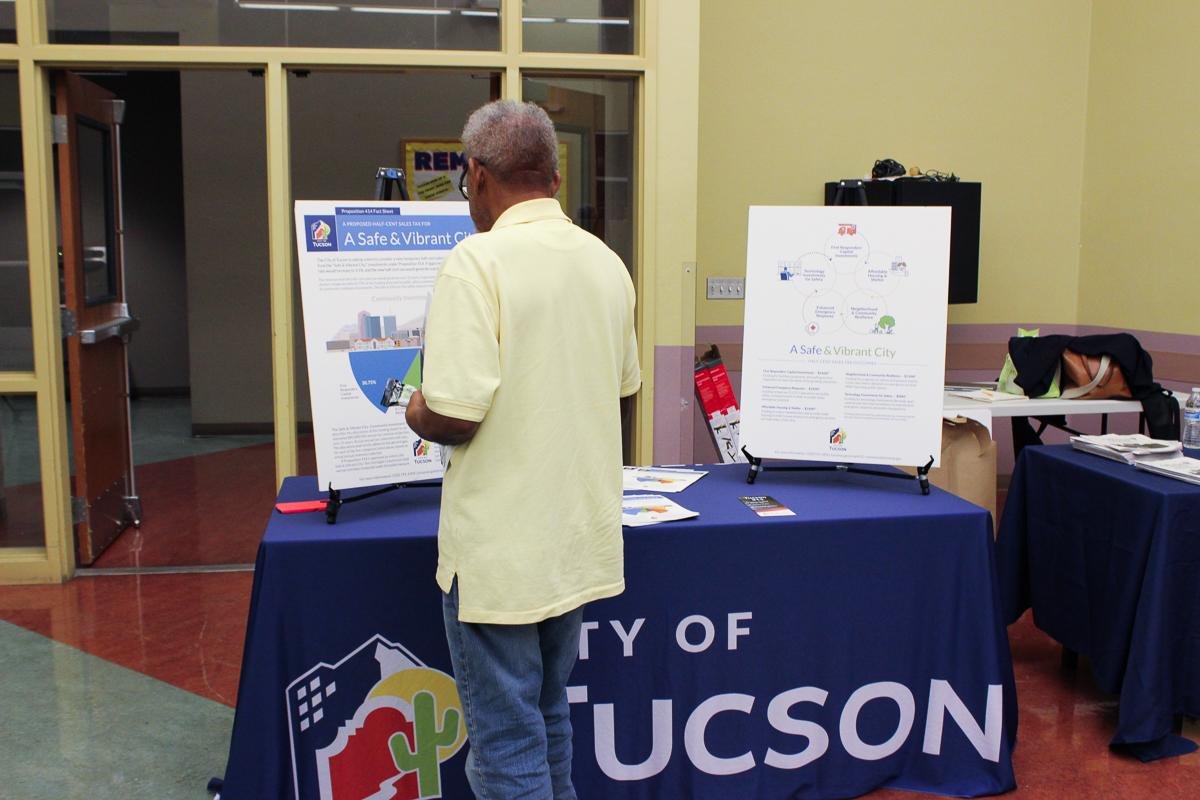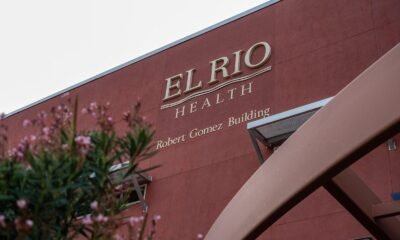Business
Tucson Town Hall: Residents Debate the Ups and Downs of Prop. 414

Residents and city officials convened at a town hall meeting in Tucson’s South Side on Thursday to discuss Proposition 414, a proposed sales tax increase set to appear on the ballot during the special election on March 11. Dubbed the “Safe & Vibrant City” initiative, it aims to allocate funding for affordable housing, shelters, early childhood education, workforce development, and support for first responders, including police.
If approved, the sales tax will rise by half a cent per dollar, increasing Tucson’s rate from 8.7% to 9.2%. This change is projected to generate $800 million for the city budget over the next decade.
According to city officials, a significant portion of the funds—approximately 65.5%—will be dedicated to “public safety investments.” This includes enhancing surveillance systems, upgrading equipment for fire and police services, and hiring additional emergency dispatchers. The remaining 34.25% would support “community resiliency investments,” encompassing initiatives like the Somos Uno cultural plan, transit improvements, tree planting, and mental health services.
However, Proposition 414 faces criticism from various groups. Some progressives label the initiative a “Trojan horse” for increased police funding, while certain local business owners argue that existing taxes are already too high.
City Manager Tim Thomure expressed that discussions at the meeting were constructive, noting that while opinions varied, participants engaged sincerely. “This plan is complicated and nuanced,” he stated. “Every investment in each of the five areas benefits the other five areas.”
Financial challenges are looming for Tucson, as projected losses of $400 million are expected due to a statewide flat income tax enacted in 2021. Mayor Regina Romero highlighted the urgency of Proposition 414, emphasizing the potential risks to housing programs and critical infrastructure without the funding. “Everything’s underfunded,” Thomure remarked. “This meets the needs of today and builds us to a different place in ten years.”
Outside the venue, a group opposing Prop. 414, labeled “No on Prop. 414,” distributed literature advocating against the measure. Organizers, such as Liz Casey, highlighted concerns that only 17.5% of the total funds would directly address housing services, despite the urgent crises in poverty and homelessness. “The majority of funds are going to police,” Casey said, criticizing the allocation priorities.
Opponents also pointed out that the proposed funding would finance new police equipment, including body cameras, police vehicles, and even an aircraft. They contend that prioritizing these expenses diverts attention from pressing community issues.
In a recent opinion piece, Casey and fellow organizers condemned the initiative as a “regressive tax on the working class,” arguing it disproportionately favors an already well-funded police department. Tucson Police Sergeant Darrell Hussman countered these claims, stressing the dire need for updated equipment and resources. “We desperately need the funding,” he insisted. “We need this to pass.”
Hussman explained that the new aircraft would enhance policing efficiency while minimizing risks to the community during high-speed pursuits. His attendance at Thursday’s meeting aimed to inform voters and encourage support for the proposition.
Among those engaged in the discussion was Willie Blake Jr., a local resident who indicated he would vote in favor of Prop. 414. “What’s in the package is good for the community,” Blake stated. “It’s not just for the police department; it’s good for repairs in the community.”
A small crowd gathered at the event, seeking clarity on the implications of the proposition prior to the upcoming election. As attendees reviewed informational materials, discussions continued about the initiative’s potential benefits and drawbacks.


















